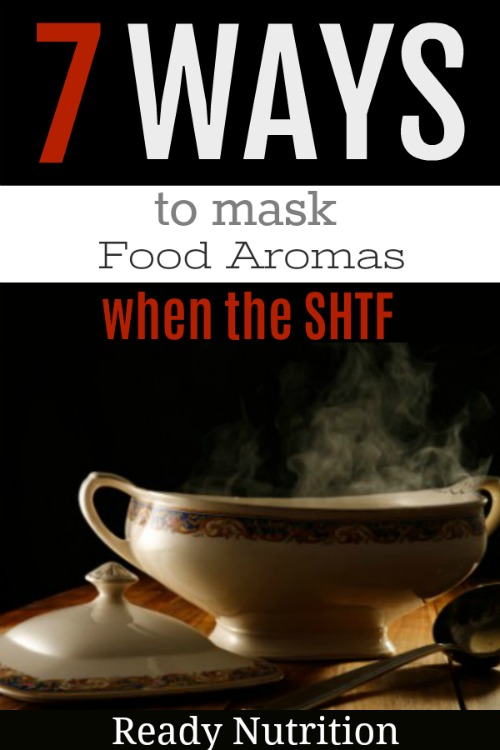
Our Smells Will Give Us Away
A fear of many preppers during the beginning stages of a true SHTF event is how our smells, as well as the aromas from foods we prepare, could attract unwanted visitors. Cooking food can be smelled in the best conditions up to a half-mile or so. Further, those who have gone without food for days on end will have a heightened sense of smell and will use this to their advantage. After all, this is what we do when we hunt, we use our senses to track down food. Animals can also be a security risk. For one, their range of smell is more advanced and could make their way to your residence in hopes of getting any leftovers. This is a very real security issue and one that we must prepare for. Using your outdoor cooking sources such as a Sun Oven, Rocket Stove, outdoor grill or oven could add insult to injury and endanger you due to the food aromas.
As nice as it is to have a fully stocked food pantry, at the beginning of a massive disaster (economic collapse, nuclear or EMP attack, pandemic, massive grid failure, etc.), we must carefully choose the types of foods to eat in order to conceal our whereabouts. Generally speaking, most people have a three-day supply of food in their homes. After that is when the crazy begins. Remember, you want to use or preserve all the contents in your refrigerator and freezer before you begin using your food stores. Once it is time to use your larder, be thoughtful about which foods you consume.
Densely Populated Areas Will Be Most At Risk
In this type of event, basic resources such as food, water, and disaster supplies will be near to extinct if you are living in a large metropolitan area. Those who live in densely populated areas, apartment complexes or sprawling neighborhoods will be challenged with bugging in and trying to not emit smells of food.
If you decided to hunker down and bug in place ensure that you have all supplies stored and ready to go. Plan to keep a very low profile and stay indoors. Further, invest in blackout curtains to conceal any light that may emit from your home. Never underestimate the desperation of the unprepared; they will want what you have. Take steps now to learn how to conceal aromas and learn which ways you can prepare food indoors to protect your location.
To maintain a level of discretion, you may want to look into these tips:
- Cook indoors. Finding clean-burning fuels such as those found in sternos. Now isn’t the time to break out the outdoor grill.
- Cook on the down-low. Plan to prepare and cook food in the early morning or late at night when a majority of people are sleeping.
- Stock up on MREs. These are self-contained meals that will not require long preparation times.
- Have meals with quick prep times. Prepare meals ahead and can them for quick preparation such as beans, soups, and stews. This will cut down on fuel and keep the smell of food down to a minimum.
- Go easy on the spices. As much as we love to add spices to our meals, they will bring added aromas to your food and inevitably could be your worst enemy.
- Eat foods that are already prepared and are shelf-stable. Shelf-stable foods is another solution to cut down on strong aromas.
- Use a thermal cooker. This is an insulated crock pot that will allow you to use minimal fuel to heat the food and also help insulate the aromas that the food gives off. You can read more on this cooking method here.
In the aftermath of disasters, the main objective of the unprepared is to find food and water. Dumpster diving, rummaging through homes, and foraging will become a norm for those trying to meet their survival need. During this time, you must be discreet in your food preparations until the recovery period or the die-off begins.


Don’t bake, don’t fry, don’t roast and don’t cook any animal or fish products. Being a vegan or vegetarian helps.
There are no vegans in a real survival situation. Either you eat whatever is at hand or you die.